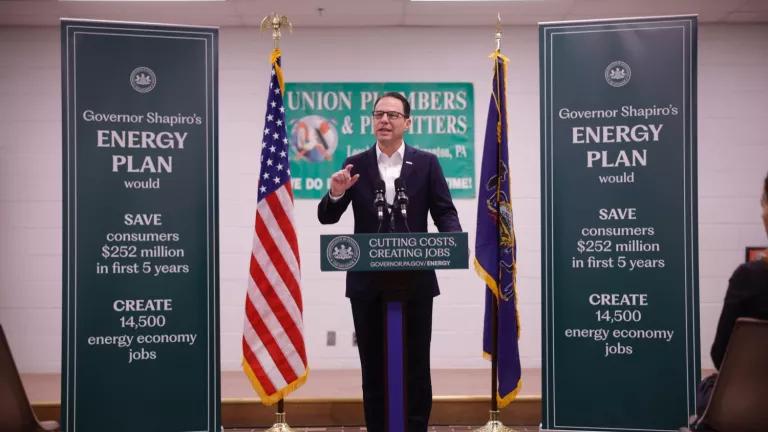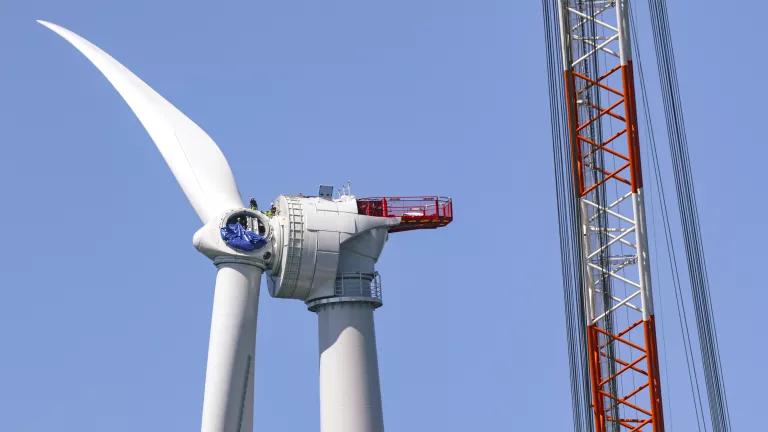
At the World Sustainable Development Summit (WSDS) next week in New Delhi, leaders from around the world are coming together to plan for strong action needed to fight the climate crisis. The Summit, hosted by The Energy and Resources Institute (TERI), is an important global platform focused on unique challenges faced by developing countries at the front lines of climate change. NRDC and our senior delegation are honored to be part of the discussions to work towards local solutions to climate challenges.
The last decade was the warmest since record-keeping began 140 years ago. Debilitating air-pollution and extreme heat waves in India and increasing intensity and frequency of extreme weather events around the world underscore the urgency to drastically reduce greenhouse gas emissions to keep global warming to less than 1.5 degrees Celsius above pre-industrial levels. Failure to achieve this goal could have a devastating impact on millions of people and countless ecosystems.
For developing countries like India, trying to lift millions of people out of poverty, climate change is not just an environmental challenge but is critical to economic growth and social development. According to a recent report, India’s GDP growth rate could reduce between 2.5 and 4.5 percent by 2030 due to climate hazards.
India is key to the success of the unprecedented effort to fight climate change. At the Paris climate talks in 2015, India had made an ambitious climate pledge including reducing its emissions intensity by 33 to 35 percent below 2005 levels and achieving 40 percent of its installed electricity capacity from non-fossil sources by 2030.
Four years after the Paris Agreement and despite facing huge pressures of economic and social development, India has made strong progress on its climate targets. India, one of the top three nations leading global renewable energy growth, aims to install 175 GW of renewable energy by 2022 and with 87 GW of installed capacity is at the mid-way mark at the beginning of this year. India has also instituted policies for low carbon transportation and is at the forefront of strengthening climate resilience in communities across the country. Yet, stronger action is needed in India and around the world to combat climate change.
So, at the dawn of a new decade, while progress has been made, a lot remains to be done. WSDS is an important milestone before the UN Climate Conference in November 2020 when nations will convene to raise global ambition on climate actions. Fittingly, the theme of this year’s WSDS gathering is “Attaining the 2030 Agenda: Making the Decade Count.”
NRDC Leadership at WSDS 2019
To advance global solutions focused on developing economies, NRDC is honored to partner with TERI for WSDS 2020. This year, several NRDC experts will be speaking at WSDS on key issues, presenting solutions and strategies from NRDC’s decades of experience in the United States and around the world.
January 29th
- Panel Discussion: “Multi-level Actions to Strengthen NCAP” with Frances Beinecke, President Emerita, NRDC and release of new report, Clearing the Air: A Review of 10 City Plans to Fight Air Pollution in India. This report provides analysis of action plans of 10 major cities under the National Clean Air Programme and presents findings for three key emissions sectors: transportation; stationary sources; and waste, construction, and diesel generator use.
- Panel Discussion: “SMART policy levers for achieving sustainable cooling” with Anjali Jaiswal, Senior Director, International Program
January 30th
- Panel Discussion: “Strengthening National Clean Air Programme for Breathable Air” with Jake Schmidt, Managing Director, International Program
- Corporate Conclave – Mobility Talks. Release of new report, Location and Siting Approaches for Charging Infrastructure: Guide for Electric Vehicle Charging Infrastructure Siting in India Cities. This issue brief provides decision-makers and stakeholders with information on the principles of charging infrastructure location and siting and presents successful electric vehicle adoption approaches that have been used by cities in other parts of the world.
January 31st
- Plenary: “Transformative Actions to Revive Green Climate Finance.” Release of new report, Growing Clean Energy Markets in India with Green Windows. This issue brief describes the concept of Green Windows, specialized units within existing financial institutions for catalyzing private investment in clean energy. The first Green Window in India is being pioneered by the Indian Renewable Energy Development Agency.
The detailed WSDS program is available here. NRDC looks forward to the Summit and working with partners around the world, sharing our deep and broad approach toward climate change on a large scale, benefiting all communities.




